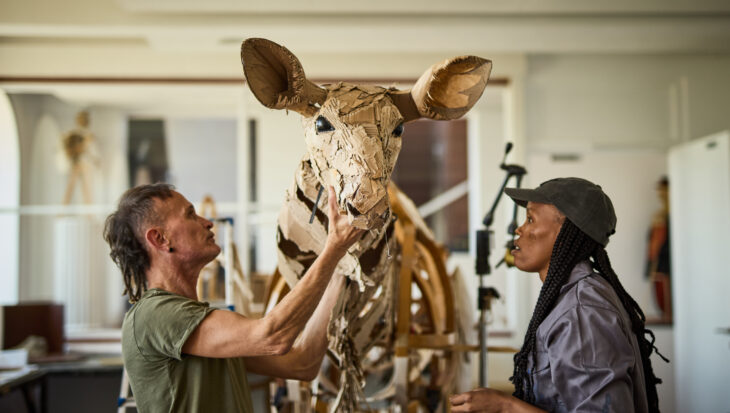‘The Herds’ will be arriving in London this Friday!
Have you heard? A breathtaking arts initiative, ‘The Herds’ will be arriving in London this Friday.
Posted 27 Jun 2025

Posted on the 26th June 2014
A YouGov poll, commissioned by Animal Aid, has found that more than three-quarters of respondents (77 per cent) oppose the use of battery cages for the production of ‘game’ birds. The figure rose to 87 per cent when counting only those who expressed a view (1).
The poll’s results mark the start of a key new phase of Animal Aid’s campaign to achieve a ban on the units – known in the industry as raised laying cages, and used for pheasants and partridges kept for breeding.
To launch the campaign, Animal Aid has released new undercover footage shot inside an intensive pheasant breeding unit. It has also written to every MP, asking them to declare their support for a cage ban. The letter links them to the new footage and underlines the strength of public opposition to the cages, as revealed by the new YouGov poll.
The Animal Aid film, shot in a game farm in central Wales (2), shows the massive scale of the operation, with row upon row of the metal cages. Inside each unit, one cock pheasant and eight to ten females are incarcerated for the whole of their productive lives. The majority of the females wear ‘anti-aggression’ face masks, whose purpose is to prevent the stressed birds from attacking one another. The new Animal Aid footage, however, shows that many birds had been feather-pecked or had suffered damage from the claws of the breeding males – some of it so severe that they had wound dressings on their backs. Dead birds are also seen. In a desperate attempt to escape the cages, the pheasants repeatedly fly upwards into the cage roof, causing what is known in the industry as ‘scalping’ to their heads.
Despite the harsh nature of the cages shown in the footage, the industry refers to them as being ‘enriched’ because, unlike the now defunct ‘barren’ cages, they contain a small round log for perching and a strip of green plastic for ‘privacy’. In the final days of the Labour government, all cages for breeding pheasants were set to be abolished under a new Code of Practice. However, that plan was scrapped by the coalition’s new Defra Minister, Jim Paice, who introduced a Code that allowed the cages to remain – albeit in their so-called enriched form.
Animal Aid is also calling for a ban on partridge breeding cages. These are metal boxes in which one male and one female are confined for their entire ‘productive’ lives. Partridge cages are correspondingly smaller and just as bleak as the pheasant units.
Says Animal Aid Director, Andrew Tyler:
‘Some 50 million pheasants and partridges are intensively reared in Britain every year to be shot for “sport”. Among the many appalling aspects of this cowardly and morally corrupt industry is the use of battery cages to confine the egg-producing birds. It is astonishing that the new coalition government should have seen, as a priority, the need to overturn a ban on the cages that had been introduced by the outgoing Labour government. Animal Aid, whose revelations and campaigning over many years resulted in the moves towards a ban, is now asking politicians of all shades to pledge their support for the final abolition of all “game” bird cages.’
https://youtu.be/QV1UHJb_97Q
Have you heard? A breathtaking arts initiative, ‘The Herds’ will be arriving in London this Friday.
Posted 27 Jun 2025

As the greyhound racing industry releases its annual data on the number of dogs’ deaths, a raft of well-known names - alongside their canine friends - has called upon the Government to end greyhound racing....
Posted 26 Jun 2025
